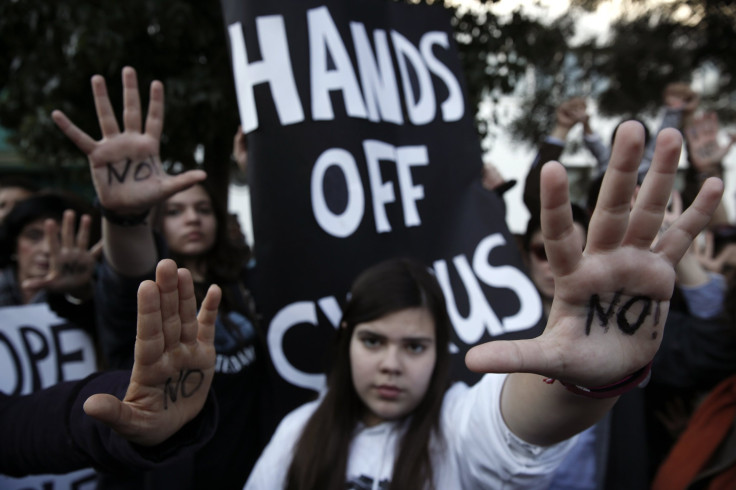Cyprus Crisis 2013: Are US Depositors' Money Safe With The Bank?


U.S. bank depositors probably won’t suffer the same fate as Cyprus bank depositors, who are looking at potential losses of as much as 60 percent of their accounts -- far more than initially estimated under the European rescue package to save the country from bankruptcy.
“All things considered, it is extremely unlikely that depositors at U.S. banks would ever suffer losses in the event of a bank failure,” said Paul Ashworth, chief North American economist at Capital Economics. “For a start, U.S. banks are better capitalized and the banking sector is a much smaller part of the overall economy.”
Accounts at the Bank of Cyprus with deposits of more than €100,000 ($128,225), which are uninsured, will lose 37.5 percent of their value after they are converted into a class of bank shares, the Central Bank of Cyprus said in a statement Saturday.
In effect, that cash will immediately disappear from depositors' accounts. The Bank of Cyprus will freeze another 22.5 percent in each of these accounts until the restructuring is plan is completed. The money will be placed in a fund that won’t earn interest, and bank customers could end up losing some or all of it, depending on the exact figure needed to restore the troubled bank back to health.
Cyprus agreed Monday to make depositors contribute to secure a €10 billion bailout from the so-called troika: the European Central Bank, the European Commission and the International Monetary Fund.
In a report for clients, Ashworth compared the banking sector in Cyprus with the banking sector in the U.S. and concluded there's little to fear in terms of a similar performance in this country.
For one thing, deposits now account for a much higher share of U.S. banks' total liabilities. This means that banks have been successful in reducing their reliance on short-term borrowed funds, which, as recent history has shown, can evaporate even more quickly than deposits during a crisis.
“Buoyed by their reserves held at the Federal Reserve, U.S. banks now hold enough cash to pay off all of their remaining borrowed funds,” Ashworth said.

In a speech last week, U.S. Federal Reserve Chairman Ben S. Bernanke noted that “despite its many exotic features, [the global financial crisis] was in fact a classic financial panic -- a systemwide run of ‘hot money’ away from assets whose values suddenly became uncertain ... collateralized wholesale funding rather than conventional bank deposits constituted the hot money, and run pressure was experienced not only by banks but by diverse other institutions, such as structured investment vehicles.”
For another thing, deposit guarantees via the Federal Deposit Insurance Corp. have been a feature of the U.S. financial system since the 1930s. The FDIC already has the funds available to guarantee deposits of as much as $250,000 despite the failure of almost any number of U.S. banks.
On top of that, the novel feature of the Cypriot crisis is that the two domestic banks that failed, principally due to losses incurred on holding Greek government debt, controlled as much as 40 percent of all domestic deposits.
“It is getting harder to envisage a scenario in which a large number of U.S. banks all fail at the same time, which might require imposing losses on depositors,” Ashworth said.
As indicated by MarketWatch's report on the Fed's latest round of stress tests, all the major banks could survive a potentially very severe recession that would trigger a sharp rise in losses on loans and securities holdings. For U.S. banks, the Tier 1 capital ratio, a measure of financial strength, is close to a record high.
Furthermore, the U.S. banking system is much smaller relative to the country's economy than are the banking systems in either Cyprus in particular or the euro zone in general.

U.S. bank assets are equivalent to only 93 percent of gross domestic product, whereas euro-zone bank assets are 346 percent and Cypriot bank assets were as much as 716 percent of GDP.
The two biggest Cypriot banks that failed had liabilities worth roughly 300 percent of GDP, which is more than three times the relative size of the entire U.S. banking system.
“The required increase in government debt would have made it impossible for the Cypriot government to bail out its banks without imposing sharp losses on some depositors,” Ashworth said.
© Copyright IBTimes 2024. All rights reserved.






















